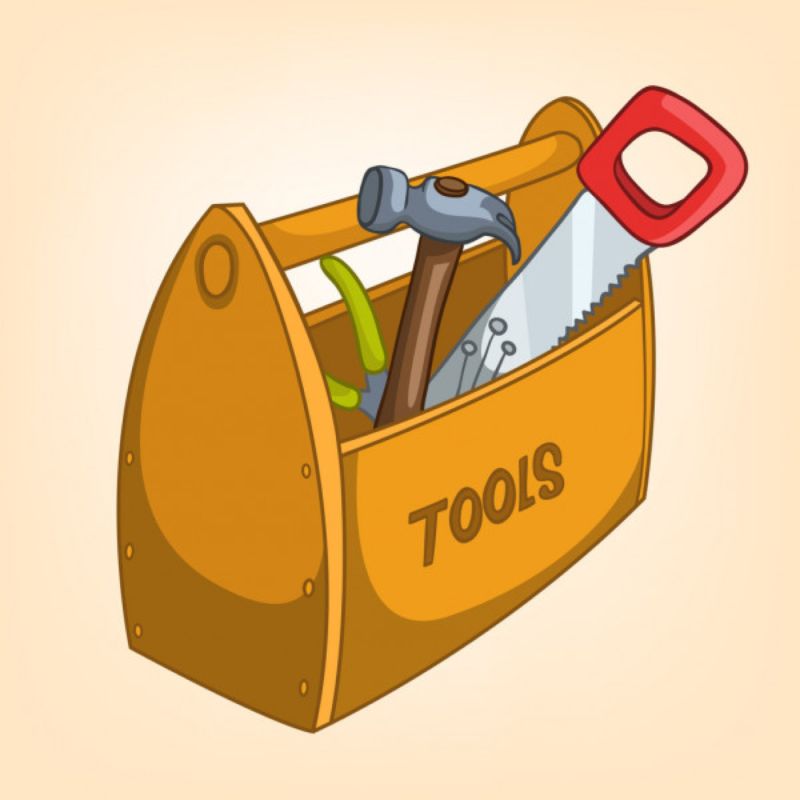Print or draw the tools from the download in the bottom and cut them so they look real. You can use a (shoe)box to put the paper tools in, or even a real toolbox if you have one.
Open the toolbox of mild upbringing. On the tools we take out you can read the words. While you read the words, give them some more information about it:
- Long-term goals: ask yourself the question “how do I want my kid to be when he/she grows up?” Not what they will do as a profession when they are older, but as a human.
- Emotions are OK: the mild upbringing assumes that after every emotion is a need that needs to be fulfilled. They are going to search for the need instead of making the emotion go away as fast as possible. If a child is scared or sad they will not tell them they don’t need to be sad or scared. They will ask why this is in order to search for the need behind it.
- Interpret mildly: always assume the most empathic story. Place yourself into your child.
- No punishing or rewarding:
- If you punish your child, you don’t just disapprove the behavior but also the emotion your child was having at that moment. They will think it’s not okay to have that emotion. The child will not link the punishment with the behavior.
- The same thing with rewarding. For example: if your kid is really shy normally, but this time it didn’t need so much time to open up to the other kids. If you compliment this behavior, the next time your child needs a little more time to open up, it will think this is bad, because now you will not compliment them. They will only do this behavior for you, to please you, not because they want to themselves. Off course this doesn't mean you can never compliment your child, just don't do it too often.
- Be predictable: so they always know what to expect from you.
- Take care of yourself: this is important because you have emotions too.
- Authenticity: always be yourself and support your own decisions



Maak jouw eigen website met JouwWeb